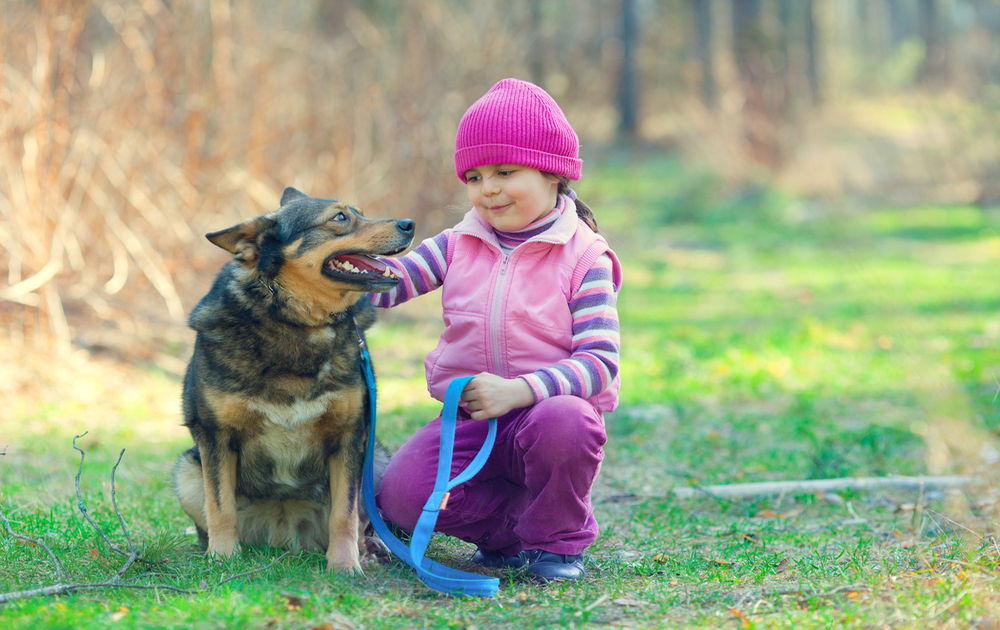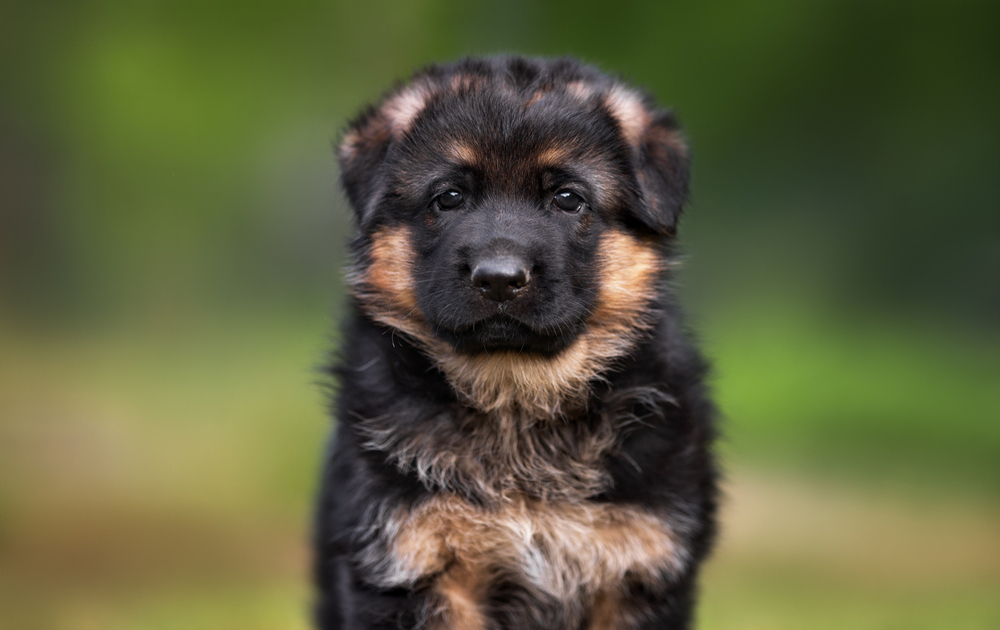There is an undeniable enchantment that surrounds baby German Shepherds. These adorable and intelligent puppies captivate our hearts with their innocence and playful nature. From their velvety soft fur to their curious eyes, baby German Shepherds exude a charm that is hard to resist.
In this book, we embark on a journey to explore the unique qualities and experiences of these remarkable puppies. Discover the joy of raising and nurturing a baby German Shepherd, as we delve into their origins, development, training, and the unbreakable bond they form with their human companions.
Table of Contents
Origin and Characteristics of the Baby German Shepherd
The baby German Shepherd, also known as the German Shepherd puppy, is a captivating breed with a fascinating history. This breed originated in Germany in the late 19th century, bred specifically for herding and guarding tasks. The credit for its development goes to Captain Max von Stephanite, who sought to create a versatile working dog with intelligence, agility, and loyalty.
Baby German Shepherds inherit a set of remarkable characteristics from their lineage. They possess a well-built physique, displaying a strong and muscular body even at a young age. With their iconic pointy ears and expressive eyes, they exude an alert and attentive demeanor.
Intelligence is one of the standout traits of the baby German Shepherd. They are quick learners and highly trainable, making them excel in various roles such as service dogs, police dogs, and search and rescue dogs. Their innate loyalty and protective instincts make them excellent companions and guardians.
Additionally, baby German Shepherds showcase a remarkable work ethic and adaptability. They thrive on mental and physical stimulation, requiring regular exercise and engaging activities to prevent boredom.
Bringing Home, a Baby German Shepherd: Preparations and Considerations
Bringing home, a baby German Shepherd is an exciting and rewarding experience. However, it requires careful preparations and considerations to ensure a smooth transition for both the puppy and your household.
First and foremost, create a safe and comfortable space for your new furry family member. Set up a designated area with a crate or a bed, food and water bowls, and appropriate toys. Puppy-proof your home by removing any hazardous items or plants that could be harmful.
Stock up on essential supplies before the puppy arrives. This includes high-quality puppy food, treats, a leash, collar, and identification tags. Invest in grooming supplies such as a brush and nail clippers.
Socialization and training are crucial for a baby German Shepherd’s development. Enroll in puppy socialization classes to expose your puppy to various people, animals, and environments. Begin basic training early on to establish boundaries and reinforce good behavior.
Prepare a schedule for feeding, exercise, and petty breaks. Consistency and routine are essential for the puppy’s well-being and house-training success.
Lastly, shower your baby German Shepherd with love, patience, and affection. Building a strong bond and providing a nurturing environment will contribute to a happy and well-adjusted puppy.
Bringing home, a baby German Shepherd requires careful planning, but the joy and companionship they bring make it all worthwhile.

Bonding with Your Baby German Shepherd: Building Trust and Affection
Building a strong bond with your baby German Shepherd is essential for a lifelong companionship filled with trust and affection. Here are some tips to help you foster a deep connection with your furry friend.
Firstly, spend quality time together. Engage in activities that promote interaction and bonding, such as playtime, training sessions, and daily walks. This not only provides mental and physical stimulation but also strengthens the emotional bond between you and your puppy.
Consistency is key. Establish clear rules and boundaries from the beginning and be consistent in your training and expectations. This helps your baby German Shepherd feel secure and understand their place in the family.
Use positive reinforcement techniques. Reward good behavior with praise, treats, and affection. This encourages your puppy to repeat desirable behaviors and builds their trust in you as a provider of rewards and love.
Create a nurturing and safe environment. Provide a comfortable space for your baby German Shepherd to relax and rest. Offer plenty of affectionate touches, gentle cuddles, and soothing massages to create a sense of security and affection.
Patience and understanding are vital. Remember that building a strong bond takes time and effort. Be patient with your puppy’s learning process and offer reassurance during challenging times.
By following these guidelines, you can create a foundation of trust and affection with your baby German Shepherd that will deepen your bond and enhance your relationship for years to come.
Welcoming Your Baby German Shepherd: First Days and Early Training
The first days with your baby German Shepherd are crucial for setting a positive tone and establishing routines. Here are some essential tips for welcoming your new furry family member and initiating early training:
1. Provide a calm and secure environment: Create a designated space for your puppy with a cozy bed, food and water bowls, and toys. Gradually introduce them to different areas of your home while supervising to ensure their safety.
2. Start potty training early: Take your baby German Shepherd outside frequently to designated potty areas and reward them with praise and treats when they eliminate in the appropriate spot. Consistency and positive reinforcement are key to successful outside potty training.
3. Introduce basic commands: Begin early training by teaching simple commands like sit, stay, and come. Use positive reinforcement techniques, such as treats and praise, to reward your puppy’s correct responses.
4. Encourage socialization: Expose your baby German Shepherd to various people, animals, and environments in a controlled and positive manner. Enroll them in puppy socialization classes to help develop their social skills and confidence.
5. Establish a routine: Set a consistent schedule for feeding, exercise, playtime, and rest. This helps your puppy adjust and provides them with a sense of security and predictability.
Remember to be patient, consistent, and gentle during these early training stages. With time, love, and positive guidance, your baby German Shepherd will develop into a well-rounded and obedient companion.
Growing Up Together: Milestones and Development of a Baby German Shepherd
As you embark on the journey of raising a baby German Shepherd, it’s important to understand the key milestones and stages of their development. Here are some notable milestones you can expect during the growth of your furry companion:
1. Early socialization: During the first few weeks, your baby German Shepherd relies on their littermates and mother for social interaction and learning important canine behaviors. Gradually introduce them to new people, animals, and environments to foster their social skills.
2. Teething and chewing: Around 4 to 6 months, your puppy’s baby teeth will start to fall out, making way for adult teeth. This period can be accompanied by increased chewing tendencies. Provide appropriate chew toys and redirect their attention to prevent damage to household items.
3. Basic obedience training: By the age of 6 to 12 months, your baby German Shepherd is ready for more structured training. Focus on teaching essential commands, leash walking, and reinforcing good behavior.
4. Adolescence: Between 6 to 18 months, your German Shepherd will go through adolescence, which may bring some behavioral challenges. Be patient and consistent with training, as they may test boundaries and exhibit independence.
5. Physical growth: German Shepherds typically reach their full height by around 12 months but continue to fill out in muscle mass until they are 2 to 3 years old. Provide a balanced diet, regular exercise, and veterinarian check-ups to support their healthy growth.
6. Mental and physical stimulation: Baby German Shepherds require mental and physical stimulation to prevent boredom and encourage their overall well-being. Engage them in interactive play, provide puzzle toys, and incorporate regular exercise to keep them happy and fulfilled.
7. Emotional bond: Throughout their development, continue nurturing the emotional bond with your baby German Shepherd through consistent training, positive reinforcement, and affectionate interactions. This will strengthen the lifelong bond you share.
Remember that each German Shepherd is unique, and their development may vary. Stay attuned to their individual needs, provide proper care, and enjoy witnessing the growth and transformation of your baby German Shepherd into a wonderful adult companion.

Nurturing a Healthy Puppy: Diet, Exercise, and Healthcare
Ensuring the health and well-being of your baby German Shepherd involves proper diet, regular exercise, and routine healthcare. Here are key considerations for nurturing a healthy puppy:
1. Balanced diet: Provide a high-quality, age-appropriate puppy food that meets their nutritional needs. Feed them in appropriate portions, following the guidance of your veterinarian, and establish a consistent feeding schedule.
2. Exercise and mental stimulation: Engage your baby German Shepherd in daily exercise to promote physical fitness and mental stimulation. Age-appropriate activities like walks, playtime, and interactive games help expend energy and prevent behavioral issues.
3. Veterinary care: Schedule regular check-ups with a trusted veterinarian to monitor your puppy’s growth, administer vaccinations, and address any health concerns. Stay up to date with vaccinations, flea/tick prevention, and deworming treatments.
4. Dental care: Promote good oral hygiene by regularly brushing your puppy’s teeth and providing appropriate chew toys to maintain dental health.
5. Grooming: Establish a grooming routine that includes regular brushing, nail trims, and ear cleaning to keep your baby German Shepherd’s coat and hygiene in optimal condition.
6. Training and socialization: Enroll in puppy training classes to teach obedience commands and socialize your puppy with other dogs and people. This contributes to their overall well-being and helps prevent behavioral issues.
Remember, each puppy is unique, so consult with your veterinarian for personalized guidance on diet, exercise, and healthcare specific to your baby German Shepherd’s needs. Nurturing a healthy puppy sets a solid foundation for a happy and thriving adult dog.
Training Techniques for a Baby German Shepherd: Obedience and Socialization
Proper training is crucial for a well-behaved and socially confident baby German Shepherd. Here are effective training techniques for obedience and socialization:
1. Positive reinforcement: Utilize positive reinforcement techniques by rewarding desired behaviors with treats, praise, and affection. This encourages your puppy to repeat those behaviors and strengthens the bond between you and your German Shepherd.
2. Basic obedience commands: Teach essential commands like sit, stay, come, and down. Break down the training into short, frequent sessions to keep your puppy engaged and focused. Consistency and patience are key to successful obedience training.
3. Leash training: Introduce your baby German Shepherd to leash walking gradually. Start in a calm environment and reward them for walking by your side without pulling. Gradually increase distractions and practice in various settings.
4. Socialization: Expose your puppy to a wide range of people, animals, and environments from an early age. Arrange controlled interactions with other friendly dogs and provide positive experiences to build their social skills and confidence.
5. Enroll in puppy classes: Enrolling your baby German Shepherd in puppy training classes provides professional guidance, structured learning, and socialization opportunities with other puppies. It also helps strengthen their obedience skills.
6. Patience and consistency: Training takes time, so be patient and consistent with your commands and expectations. Avoid punishment-based training methods, as they can be detrimental to your puppy’s trust and well-being.
By employing positive reinforcement, consistent training, and proper socialization, you can shape your baby German Shepherd into a well-behaved and socially adaptable companion. Remember to make training sessions enjoyable and maintain a nurturing environment that fosters learning and growth.
Adventures and Playtime: Activities to Stimulate a Baby German Shepherd
Playtime and engaging activities are essential for the mental and physical well-being of a baby German Shepherd. Here are some stimulating adventures and activities to keep your puppy happy and active:
1. Interactive Toys: Provide puzzle toys, treat-dispensing toys, and interactive games that challenge your baby German Shepherd’s problem-solving skills and keep them mentally stimulated.
2. Agility Training: Set up an agility course in your backyard or enroll in agility classes. This activity improves your puppy’s coordination, builds confidence, and strengthens the bond between you and your German Shepherd.
3. Fetch and Retrieve: Playing fetch is a classic game that helps your puppy burn off excess energy while improving their retrieval skills. Use toys or balls designed for dogs and make sure to play in a safe area.
4. Swimming: If your baby German Shepherd enjoys water, take them for supervised swimming sessions. Swimming is a low-impact exercise that provides a full-body workout and helps keep them cool during hot weather.
5. Nature Walks: Explore nature trails, parks, and hiking trails together. Allow your puppy to explore new scents, sights, and sounds while getting exercise and fresh air.
6. Obedience Training Games: Incorporate training into playtime by playing obedience-based games like “hide and seek,” where you hide and call your puppy to come, reinforcing their recall command.
Remember to tailor activities to your puppy’s age, physical capabilities, and preferences. Always prioritize their safety and monitor their energy levels to avoid overexertion. Adventures and playtime not only provide physical exercise but also strengthen the bond between you and your baby German Shepherd, promoting a happy and fulfilled life together.
Challenges and Solutions: Common Issues with Baby German Shepherds
While raising a baby German Shepherd is a rewarding experience, it can come with its fair share of challenges. Here are some common issues and potential solutions to help navigate these challenges:
1. Biting and chewing: Baby German Shepherds explore the world with their mouths, which can lead to unwanted biting and chewing behaviors. Provide appropriate chew toys, redirect their attention to acceptable items, and consistently reinforce gentle behavior.
2. Separation anxiety: Baby German Shepherds may experience separation anxiety when left alone. Gradually acclimate them to being alone, use positive reinforcement to reward calm behavior, and consider crate training to create a safe space for them.
3. House-training accidents: Accidents are a common occurrence during the house-training process. Establish a consistent schedule for feeding, potty breaks, and reward them for eliminating in the appropriate spot. Clean accidents with enzymatic cleaners to remove odors and discourage repeat accidents.
4. Leash pulling: Many baby German Shepherds tend to pull on the leash during walks. Practice loose leash walking techniques, use positive reinforcement, and consider using a front-clip harness to discourage pulling.
5. Jumping on people: Baby German Shepherds may have a tendency to jump on people as a way of greeting. Teach them the “off” command, redirect their behavior with a toy or treat, and reward them for calm greetings.
6. Fear and socialization issues: Some baby German Shepherds may develop fear or anxiety in certain situations. Gradually expose them to new environments, people, and stimuli, using positive reinforcement and rewards to build their confidence.
Remember that consistency, patience, and positive reinforcement are essential when addressing these challenges. Seek guidance from professional trainers or behaviorists if needed. With time and proper training, many common issues with baby German Shepherds can be successfully managed.
Lifelong Companionship: The Journey with Your Baby German Shepherd
Welcoming a baby German Shepherd into your life marks the beginning of a lifelong companionship filled with love, joy, and memorable experiences. As your puppy grows into adulthood, your bond will deepen, and the journey together will unfold.
Throughout the years, you’ll witness your baby German Shepherd’s growth and development, celebrating milestones, and overcoming challenges together. You’ll share countless adventures, from exploring new places to engaging in playful activities that strengthen your bond.
Your German Shepherd will become more than just a pet; they’ll be a loyal friend and a devoted family member. They will provide you with unwavering loyalty, comfort in times of need, and endless love and affection.
As you embark on this journey, be patient, understanding, and committed to their well-being. Continue to nurture their physical and mental health through proper care, exercise, and training. Cherish the moments of laughter, playfulness, and quiet companionship.
The journey with your baby German Shepherd is one of lifelong companionship, creating cherished memories and building a lasting connection that will bring immeasurable happiness and fulfillment to both of your lives.
Frequently Asked Questions
Q1: How often should I feed my baby German Shepherd?
Ans: Baby German Shepherds typically require three to four small meals a day until they are around six months old. Gradually transition to two meals per day as they mature.
Q2: When should I start training my baby German Shepherd?
Ans: It’s best to start training your baby German Shepherd as early as possible, ideally around eight weeks old. Begin with basic commands and positive reinforcement techniques.
Q3: How much exercise does my baby German Shepherd need?
Ans: Baby German Shepherds have lots of energy and require regular exercise. Aim for at least 30 to 60 minutes of physical activity, such as walks and playtime, every day.
Q4: How can I socialize my baby German Shepherd?
Ans: Socialization is vital for a well-rounded German Shepherd. Expose them to various people, animals, and environments from an early age. Enroll them in puppy socialization classes for positive interactions.
Q5: When should I start grooming my baby German Shepherd?
Ans: Begin grooming your baby German Shepherd early to get them accustomed to the process. Start with gentle brushing and introduce nail trims, ear cleaning, and bathing gradually to make it a positive experience.
Conclusion
The journey with a baby German Shepherd is filled with unconditional love that knows no bounds. From the moment they enter your life, their presence brings joy, companionship, and unwavering loyalty. Through their playful antics, gentle nuzzles, and soulful eyes, they touch your heart in ways words cannot express.
They become your confidant, your protector, and your most trusted companion. The bond formed with a baby German Shepherd is an extraordinary connection that deepens with time, creating a lifelong friendship that enriches your life in immeasurable ways. Their love is a constant reminder of the power and beauty of the human-animal bond, reminding us of the purest form of love that exists in this world.

I’m David, an expert contributor and writer, with two furry friends of my own, I know the challenges of raising and caring for dogs. From training to nutrition and health, my goal is to provide valuable insights and advice to help create strong bonds and happy, healthy lives. Find me in Twitter.




